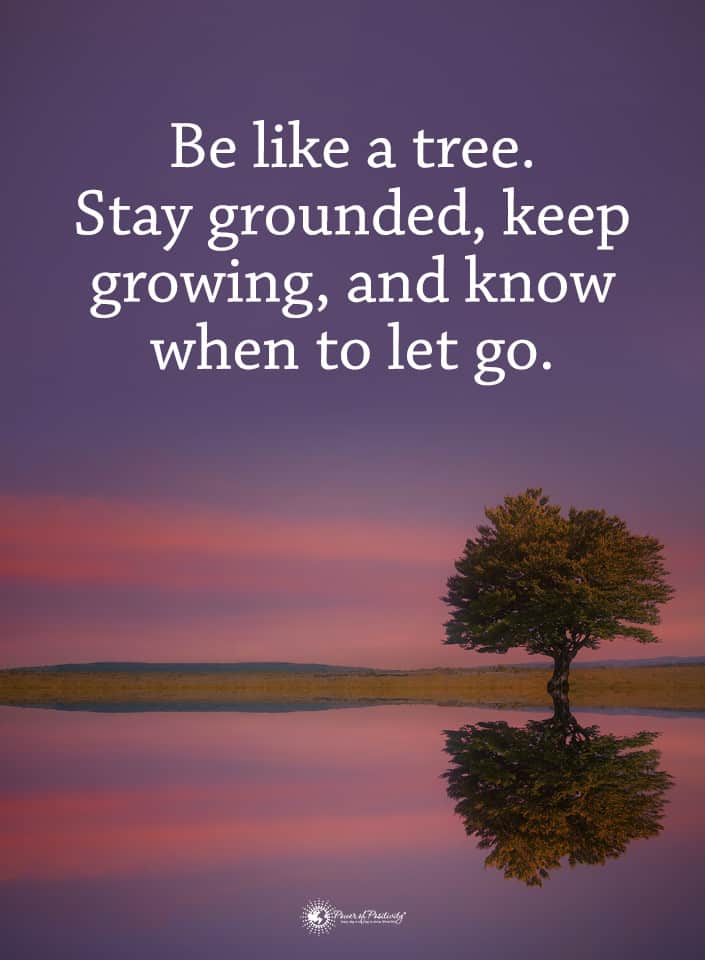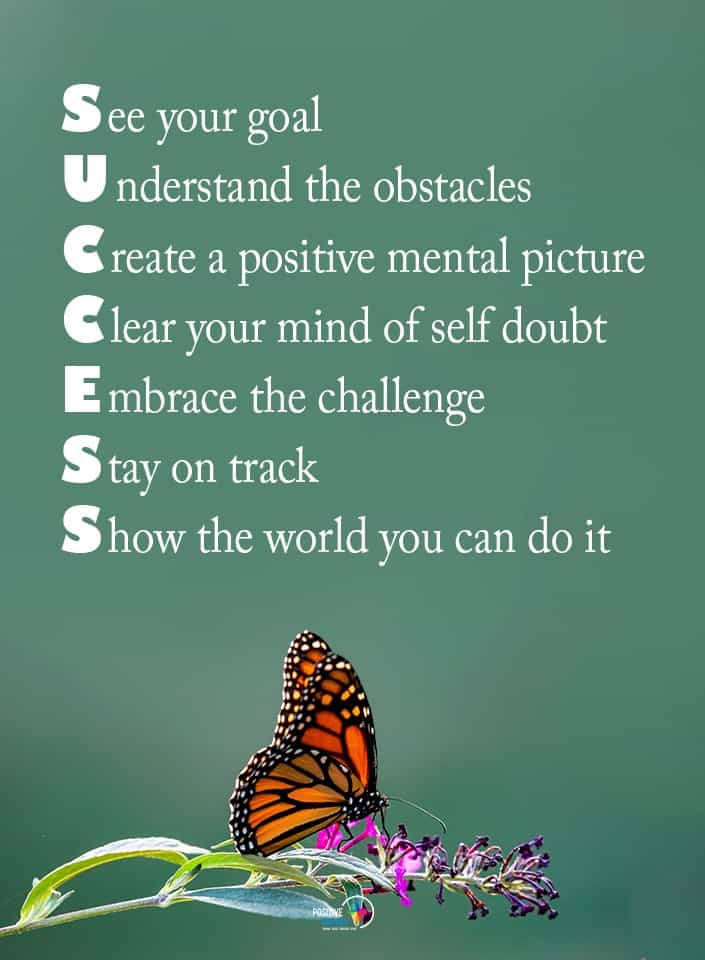Anger is often viewed negatively. It’s considered unproductive, unprofessional, and even incorrect to feel any anger at all. But in reality, anger is a crucial component of the entire emotional spectrum, and the emotion comes up for a reason. Listening to anger and allowing yourself to experience it can be powerful. In fact, it might even help you to succeed in life.
Too often, we learn that all emotion is terrible to have, but that isn’t true. Anger, among other feelings, can be mighty. But does that power translate to real life and real-world applications? Can anger help you succeed in life? Research says so! Here are nine ways that it does this.
1. Anger Can Grant You The Insight You Need to Succeed in Life
Anger doesn’t have to be unconstructive. It can give you insight into yourself if you allow it to teach you those lessons. The trouble, of course, is that not everyone wants to gain that insight. But those who do can.Research shows that an outburst of anger can give individuals a deeper look at their flaws, giving them insight into themselves and how they can change. Essentially, if you get better at noticing your anger and finding its roots, it can teach you a lot about your genuine emotions, how you can manage them, and what you can do to avoid similar future issues.
2. Anger Is Good For Relationships
This probably sounds a little confusing, as you’ll know that fighting and anger in relationships, especially when it bleeds into resentment, is very detrimental to the survival of that partnership.
However, studies into interpersonal conflict have revealed that the act of hiding anger is far more detrimental to relationships than the act of openly expressing that anger. This is because:
- Repressing negative emotions only makes them stronger
- A lack of communication regarding anger is a reflection of poor communication within the relationship
- Not getting angry can mean no one knows that they’ve done something that bothers the other
- Hiding anger can lead to a build-up of resentment and negativity that can be easily reversed
Of course, there are some rules to this. You can’t just storm into a partner’s room and start screaming at them and accusing them of things and call it a positive display of anger. Instead, express your anger directly and honestly, and then work together to find a solution. This will strengthen your relationship in the long run. And if healthy relationships are part of your picture of success, learn to use that anger constructively!
3. Anger Stops You From Overthinking
If you’ve ever sat down and ruminated about the options you face on your journey to success, you’ll likely be familiar with the terrifying and anxiety-inducing occurrence of overthinking. This kind of thought makes it tough to make decisions and saps out your positive thinking.
But when you’re in a rage, your ability to overthink at all is often greatly reduced. Your brain becomes hardwired into impulses. Why is this a good thing? Consider:
- You don’t think – you can do, and you can make leaps and choose things that you would usually be too afraid to do.
- You’re able to gain the momentum to lurch forward and keep moving without worrying too much about what may happen next.
- You don’t second-guess or question yourself, and you become sure of yourself for a quick moment.
Of course, there’s a limit to this. It would be best if you didn’t always make impulsive decisions in your life, and when you can, it’s always best to double-check the things you do in a rage to ensure there’s no carelessness at play. But that high-energy, highly motivated, unafraid power that comes with rage can be the push you need to stop overthinking and to go for it.
4. Anger Motivates You To Beat The Odds And Succeed In Life
Suppose something in your life you want for yourself. Using anger constructively can give you a powerful boost towards it. You have undoubtedly heard of people who “succeed out of spite,” so to speak. These individuals take their anger and use it to motivate them, making it a positive force for their lives. You can do that, too, provided that your anger is the kind you would like to act on.
When you’re angry, you’re more likely to want to move closer to your goals, even when you face hurdles and challenges. That anger can be the driving force to push past all the problems you face. Studies have even shown that seeing angry faces mean you are more likely to want things you are exposed to. So if you need more motivation to go after success, you may find it in anger.
5. Anger Is A Survival Instinct
Emotions occur for a reason. They seem irrational on the surface, but they’re impulses created by the body in times of stress when you need to protect yourself. This means there’s a purpose for them – and anger is often a part of a survival instinct, a primitive fight-or-flight designed to keep you safe.
But why does this matter to success? Well, fight-or-flight doesn’t only occur in extreme danger. It can also happen when you’re stressed out, facing adversity, or trying to fight to keep your goals alive. If anger comes up as a response to this, you can use it productively to help you succeed in life by:
· Regaining Control
Anger removes feelings of helplessness and confusion, channeling your focus so you can maintain control and feel in charge when things look rough. Show your fury and communicate it, and you can control the road up ahead.
· Protect Your Emotions
It would be best if you didn’t repress how you feel, but anger can help to temper the most significant sting of negative emotions. In the time of your offense, you can process your feelings without feeling the worst of their pain and keep moving forward.
· Let It End and Calm
When your anger finally ebbs away, and you are safe again, the feeling of calm that follows can be cathartic. Now is the time to reflect, think, and pick yourself back up again and push on once you’re relaxed.
6. Anger Can Be Used In Negotiations
Anger, as a display of emotion, seems like it has no place whatsoever in level-headed negotiations. But according to studies, anger can have positive effects on the angry person’s outcomes in such interactions, gaining them more extensive concessions and resulting in fever demands. This may be because it’s tough to ask things of someone you perceive as angry, as they can be intimidating.
However, anger in itself shouldn’t be the entire strategy in a negotiation. It’s not going to work if all you do is enter a meeting space and start yelling or behaving irrationally and emotionally. Instead, this works best when:
- Your anger is justified, and you can articulate that fact to the other parties.
- The other parties have limited options or are in a position where they are at a disadvantage or in lower places.
- You use your anger in a constructive, powerful way without behaving like you’ve lost control of yourself.
- Your goal with your anger is to receive fair treatment or to “get even” for something that you deserve to get even for
7. Anger Can Psyche You Up
Many people seem to understand the benefits of constructively used anger naturally, and studies have found that many know how to harness such feelings when they need to. For example, if you need to confront someone or stand up for yourself, you are likely to know that you can draw from your anger for energy and confidence.
Success and chasing success involve many moments that can be overwhelming and frightening. Learning to use righteous and constructive anger to psyche yourself up for challenges is a great way to train yourself to meet them head-on.
8. Anger Makes You Optimistic
It’s a little strange to imagine that being angry can somehow be good for your positive thinking, but research supports this concept! Studies have found that if you experience anger as a response to difficult events or trauma, you are more likely to have an optimistic view of the future beyond those events.
This is somewhat related to the positive effects of anger on motivation, and we previously mentioned that spite in anger is great for empowering you to move forward. But it’s really about more than just that! Being angry means you want to fight for things to be better because you know you deserve better than this, and that makes you have a more positive perspective of the future to come.
And, of course, the crux of this is that optimism is essential for success in life. If you think you’re going to fail, then you likely will, but if you think you can succeed, you have a higher chance of putting in the effort necessary to do so.
9. Anger Can Reduce Violence
Admittedly, this concept sounds very, very strange. Doesn’t a lot of anger come from violence, after all? While that’s not wrong, it’s also not a very nuanced way of looking at the topic. Consider:
- Is anger a surefire lead-up to violence, or is violence merely more likely to come from instances of anger as a rare result of them?
- When people can’t express their anger, are they sure to be peaceful. Or are they more likely to jump directly to violence when they snap?
- Does anger, expressed positively and with critical thought, allow attention to be drawn to subjects that deserve justice – and doesn’t the anger then fade once the issue is addressed?
Together, these factors paint a picture that, when used well, anger can reduce violence or lower its risks. It is a strong and powerful social signal that is hard to ignore and that on its own is enough to reduce the chances of a violent outcome. So if you have difficulty with anger management, instead of repressing those feelings, you can use your anger to motivate you to succeed in life.
Final Thoughts On How Anger Can Help You Succeed In Life
Anger, when used constructively, is a fantastic tool to add to your arsenal of weapons that push you towards success. However, there’s a limit to how productive anger can be. If you feel that your anger is becoming unproductive, it’s time to stop and reflect on it and see what can be done to get it back to reasonable levels.

















 Community
Community

